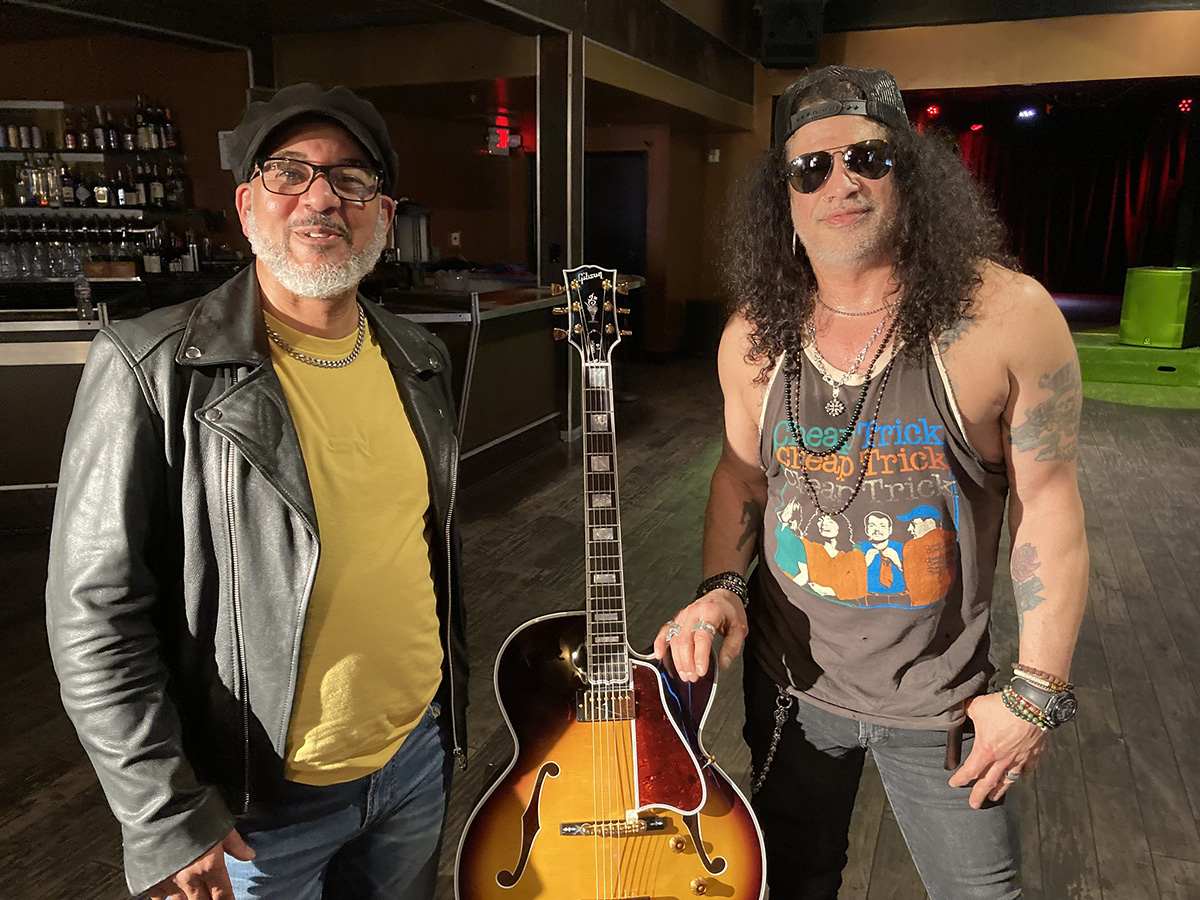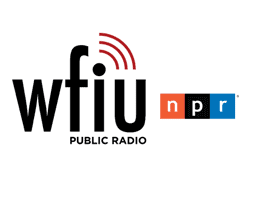
Wes Montgomery's son, Robert, with guitarist Slash, who appears in the Wes Bound documentary.
Learn more about the life and legacy of jazz guitar legend Wes Montgomery in this interview with producer Kevin Finch. His documentary, Wes Bound: The Genius of Wes Montgomery, premieres Sunday, February 26 at 8 p.m. on WTIU.
Q. What inspired you to make this documentary? What was that initial spark?
A. It was more of a slow realization than a spark. I had been a fan of Wes for decades and thought he is one of those success stories Indianapolis and Indiana should be bragging about at every opportunity. As I was wrapping up my previous documentary and was considering next subjects, I did a little investigating.
I couldn’t believe it when I found out no one had produced a full-length film documentary about Wes Montgomery. Wes Montgomery! Are you kidding? NPR did a lovely radio documentary years ago, but that was it.
So, it has become a cause, not just a project.
Q. Based on what you uncovered making this documentary, could you describe Wes Montgomery as a person and a public figure?
A. He was a quiet man who let his music do the talking for him. Hoosier trumpet player Pharez Whitted refers to him in the film as “one of the beautiful ones” for being a responsible family man. Others we talked to say he was simply a nice, approachable guy with no ego.
Q. How did Montgomery’s story change you? How were you personally impacted by his life journey?
A. I’m drawn to stories of people with quiet self-confidence. No fuss, just hard work hand-in-hand with creativity. Wes proves you can be the very best at what you do and not need to prove it or boast about it. And you can have an inner decency. Good life lessons you’re never too old to learn.
Q. What do you believe Wes Montgomery would be most proud of? What would he see as his greatest contribution in his short time with us?
A. That’s easy. His family.
He’d be so pleased with his kids and how well they turned out and how many grandchildren and great-grandchildren he has. Musically, I imagine he would appreciate how his music and that of his brothers, Monk and Buddy, remains relevant today. That we are still talking about it, that musicians are still playing it and trying to learn from it. In his quiet way, he’d be happy about that.
Q. Take us back to your favorite interview interactions. Who made you laugh, who made you cry, and who made you think about things a little differently?
A. I called Robert Montgomery (Wes’s youngest) our “conversation leader.” We had some prepared questions to ask some of these musicians, experts, historians, and so on. But it worked best when Robert just maintained a conversation and reacted naturally.
His reaction when Everett Greene talked about how John Leslie Montgomery became “Wes” was just spontaneous fun. And so was Robert’s time with Wes’s drummer, Billy Hart. It was almost like a reunion for those two and led to one of the most memorable moments in the film. I don’t want to steal their thunder, though.







